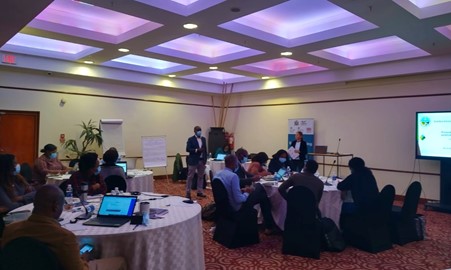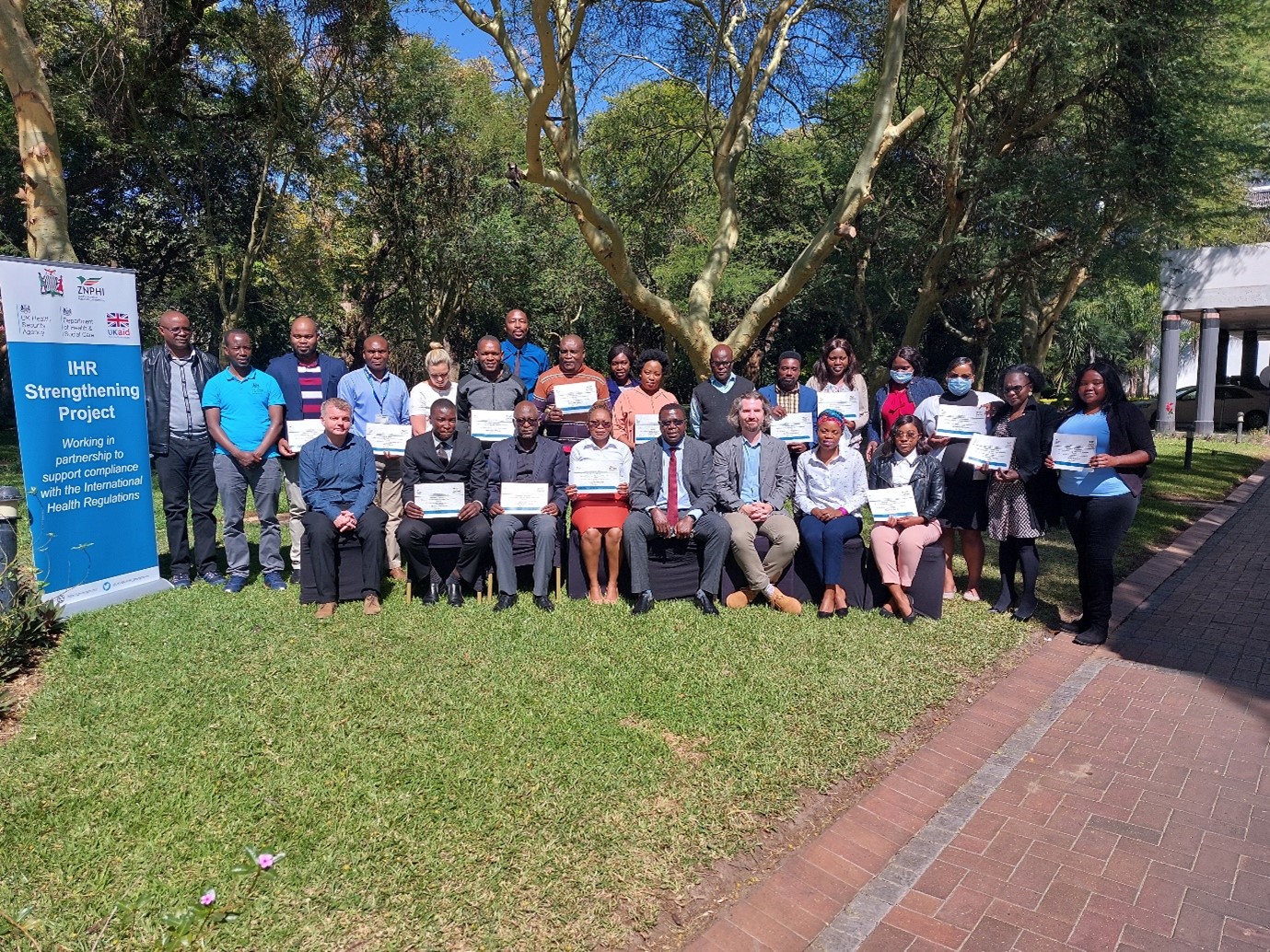
In June 2022, the IHR Strengthening Project Radiation, Chemical and Environmental (RCE) team, with the support from the IHR Strengthening Zambia team, delivered Chemical hazards and public health foundational training. The training consisted of presentations and interactive workshops designed to develop skills in managing chemical public health emergencies and demonstrate how emergency response, planning, and chemical surveillance can help prevent and limit the impact of chemical incidents.

This was the second iteration of the training (previously delivered in Nigeria) and training delivery was complemented by presentations from the Zambian Environmental Management Authority and Swedish Chemicals Agency who provided insight into the management of pesticides and toxic substances in Zambia, and a presentation from the National Food Laboratory on the establishment of a Poisons Information Centre in Lusaka. Furthermore, a case study on Environmental Epidemiology which was developed in Zambia as part of the Field Epidemiology Training Program (FETP) was presented by the IHR strengthening project Zambia team during the training. The Zambian National Public Health institute (ZNPHI) provided presentations on the IHR regulations and the Director General presented on the importance of chemical hazard preparedness to the local context. Following feedback from the Nigeria foundational training, delivery was supported by use of Padlet so training materials could be accessed electronically by participants and Mentimeter was used during the training to encourage trainee participation in interactive sessions.The RCE team has been working with ZNPHI and other key stakeholders to strengthen the national capacity to improve environmental surveillance and response to chemical incidents in the country. This was RCE’s third time in-country, and the delivery of the training provided initial steps on improving these key aims. The training also offered the opportunity to introduce the concept of a chemicals technical working group which would improve multi sectoral collaboration between stakeholders to deal with chemical issues in country.
The training has provided increased confidence to the participants in identifying and managing chemical public health hazards. The workshops yielded positive results, with one delegate commenting that as a result of this event, they will be “able to launch investigations of chemical hazards without any problem, this was a gap in my working station”. Similarly, another participant said “I will be able to provide technical guidance in case of events related to chemicals”. The training allowed one respondent to “advocate for establishment of chemical hazards analysis, integrate chemical hazards surveillance in my routine work and orient others on chemical hazards analysis". The event gave the ability to another delegate to “initiate the development of an emergency preparedness and response plan to start with". The feedback received was generally very positive and many delegates indicated they would implement some changes to their work practices as a result of the training.
The workshop sessions and group discussions encouraged delegates, including ZNPHI, Zambia National Public Health Reference Laboratory, Radiation Protection Agency, National Food Laboratory, and Zambian Medicines Regulation Authority, to interact throughout the training, and provided an opportunity to network, discuss and share their knowledge and experiences. Following the event, the participants indicated that the interactive group discussion were particularly useful and expressed interest for further detailed training in the future.
